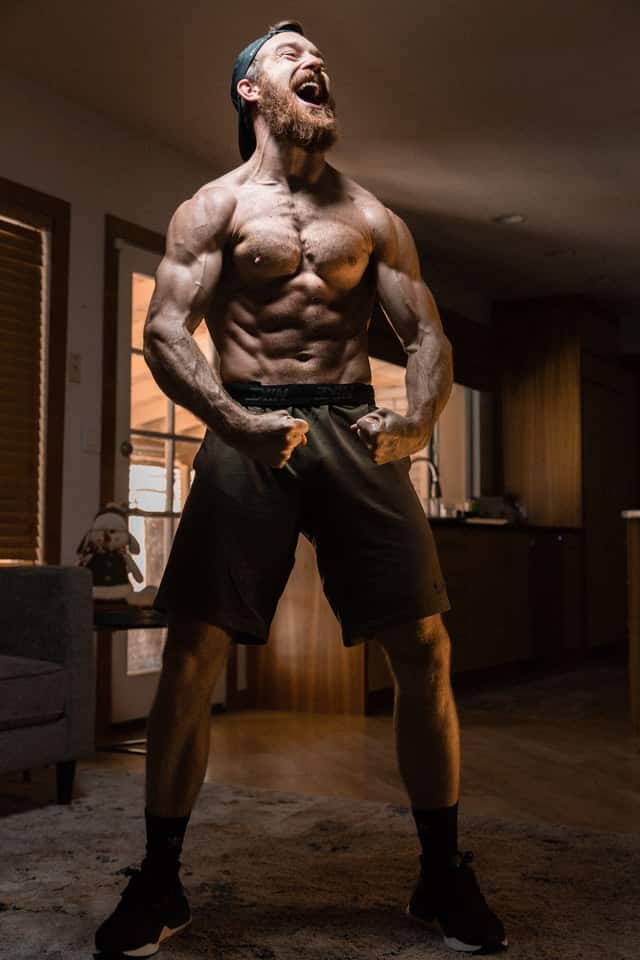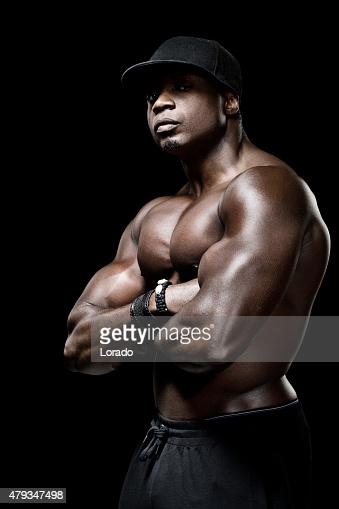The verdict is out. Most women prefer muscles on a man… or at least that’s what the majority of the 1,088 women that we surveyed said. The athletic physique had the highest percentage of overall votes (44.3%), while the lean physique received the second highest percentage of votes (35.1%).
“No one will be surprised by the idea that strong men are more attractive,” said study author Aaron Lukaszewski, an evolutionary psychologist at California State University at Fullerton. “It’s no secret that women like strong, muscular guys.”
There was no nuance to these results, he said. Zero of the 160 women surveyed showed a statistical preference for weaker men.
“That is so obvious, people are going to wonder why scientists needed to study it,” said Holly Dunsworth, an anthropologist at the University of Rhode Island who was not involved in the research. “And the answer would be because they want to know how these preferences evolved.”
Lukaszewski and his co-authors created a photo database of shirtless or tanktop-wearing male college students, all from the University of California at Santa Barbara. The men’s heads were digitally obscured. Dunsworth described the overall effect as “faceless, soulless blockheads” above naked torsos. “It’s nice to see evolutionary psychology treating everybody like pieces of meat,” she said, “not just women.”
Sixty of the shirtless men were recruited from the university gym; 130 were students enrolled in psychology courses. The researchers quantified the students’ physical abilities via weightlifting machines, grip strength tests and other measures.
The raters were students in their teens or early 20s enrolled at Oklahoma State University and Australia’s Griffith University. Men and women were asked to judge how attractive or strong they thought the men were, on a scale of 1 to 7. It turns out we are good at guessing a stranger’s strength. Perceptions of strength closely aligned with the men’s actual strength.
The researchers also discovered a linear relationship between a man’s rated strength and his attractiveness. “What really explains the lion’s share in attractiveness is how strong a man looks,” Lukaszewski said.
The study authors described a strong body as a signal, one our ancient ancestors would have understood: This is a healthy individual with a hearty immune system, the ripped body suggests, someone who can devote calories to building muscle rather than fighting off germs. Strength was also an “indicator of one’s ability to provide material and social benefits,” Lukaszewski said. In this interpretation, a strong man has value as a potential protector of women and children and is desired by other men as an ally.
Some evolutionary psychologists suggest there is an optimal peak for male strength, beyond which hulkish, muscle-bound men cease to be attractive. That trend did not appear in this study. Lukaszewski said this concept is based on psychological evaluations using line drawings of cartoonishly muscled men. Although the student database included chiseled “frat guy” types, as he put it, none of the men reached the exaggerated proportions previously reported to be unpleasant.
Dunsworth said that despite the study’s straightforward methods, she did not find the authors’ evolutionary explanations in the paper convincing. “They made no link between any of those responses of those women to any sort of ancient, deep-seated evolutionary traits,” she said.
She pointed out that the results might not be universal. The raters were college-age women evaluating the appearance of college-age men. They might not “have much of an experience with what attractiveness means,” Dunsworth said. The study authors also acknowledged that physical attraction to someone’s body, after all, is only one set of cues we use when appraising partners.
“It’s my opinion that the authors are too quick to ascribe a causal role to evolution,” said Lisa Wade, a sociologist at Occidental College in Los Angeles. “It’s nothing unique to them. Much of this type of research has the same methodological problems.”
Instead, she says that culture, not evolutionary history, has the stronger influence over what is physically desirable. “We value tall, lean men with strong upper bodies in American society,” she said. “We’re too quick to assume that it requires an evolutionary explanation.” Shredded abs, she said, are more for show than any practical function.
“We know what kind of bodies are valorized and idealized,” Wade said. “It tends to be the bodies that are the most difficult to obtain.” If researchers had performed this experiment a century ago, when calories were scarcer and manual labor was not, heavier torsos would have been rated more highly than lean ones. Leanness, she said, was not universally valued across cultures and time.
Lukaszewski says his team plans to examine physical attractiveness around the globe. “We have a cross-cultural study that’s underway right now,” he said, one that included more than a dozen sites around the world.









